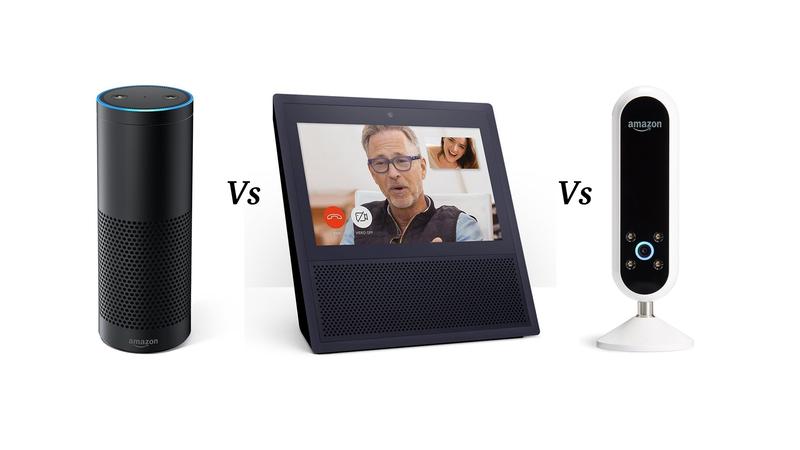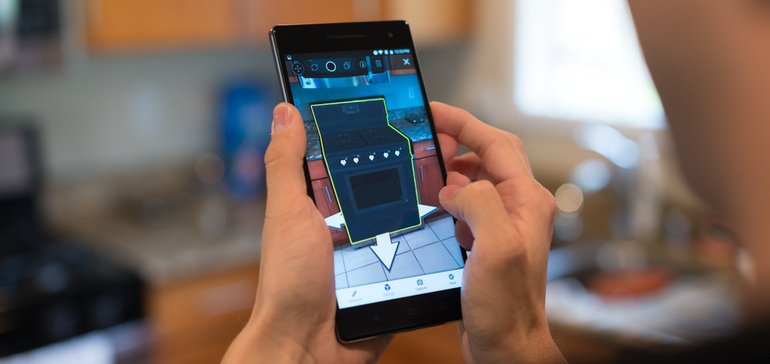Download our E-BOOK
4 Emerging Platforms for Mobile Apps
May 26, 2017
by Ashley Rondeau
It’s an exciting time for mobile apps for many reasons, but one of the best is that apps are no longer confined to the small rectangles in your pocket or lap. These days, smartphones and tablets are not the only devices that can utilize apps, which just makes them that much more useful. Let’s take a closer look at the four platforms that are poised to be the next big venues for mobile apps.
1. Digital assistants.

It already feels like the Amazon Echo is “old news,” even if the at-home digital assistant powered by Alexa became widely available only in 2015. But now that Google Home is in the mix, and both Apple and Microsoft seem close to releasing their own standalone devices powered by Siri and Cortana respectively, this market is about to heat up.
Not to mention the recent advances in these assistant devices as well. Amazon just released the Echo Look and Echo Show that adds a camera and screen for added functionality. Furthermore, Google is already gearing up to release Google Home 2, though the jury’s out on what features it might add.
With their functionality and relatively low price tag (Amazon’s Echo Dot is just $49.99), it’s not hard to imagine these digital assistant devices becoming ubiquitous in the average home in the near future. Thus, this is a tremendous opportunity for companies to create apps that take advantage of these “hubs of the home.” Your business should do well to plan for these upgraded devices. How could your app utilize an Echo Show? Eventually, someone could say “Alexa, what’s on sale today at XYZ?” and XYZ’s app would pop up to display the appropriate items.
Apps have always been about convenience, and being available on an at-home device that’s always at the ready is about as convenient as you can get.
2. Virtual reality.

Companies are slowly figuring out what to do with virtual reality technology, and it’s poised to lead to some exciting innovations. The bottleneck is/was the headset itself. Google Cardboard was cheap, but limited and uncomfortable. Oculus Rift was comfortable and powerful, but extremely expensive. But Google, HTC, and Lenovo are all working on new headsets that are both powerful and will cost in the mid-hundreds. This may be the tipping point to bring VR to the masses.
VR, of course, has almost unlimited potential as a platform for new apps. With a whole virtual world to play in, companies can do just about anything. Facebook Spaces is an attempt to try “social” media in a whole new way, by literally making your interactions social in a virtual space. It’s gimmicky, sure, but it’s not hard to imagine people hanging out virtually who want to interact with an app all together. Maybe they want to window shop, or try on clothes, or check out a virtual restaurant. Will your company have an app that can plug into this world?
And who said VR has to be hokey or just about goofing off with friends? Researchers have been utilizing VR to advance medicine or get a 3D view of what it will be like to colonize Mars. If you run a manufacturing company, 3D modeling of products that you can actually interact with may save millions in R&D. Real estate companies can offer VR tours of properties. While creating apps for VR may be on the more difficult side of coding for the moment (meaning, an 8-week Swift bootcamp won’t nearly be enough to create a robust VR app), we’re still excited to see the possibilities in the near future as mobile apps are redefined for the VR age.
3. Augmented reality.

Augmented reality is similar to VR, but these apps overlay virtual objects in our real world. Pokémon Go is still the most well known AR app thus far, but this technology has more potential to be the next big thing, even before VR, since it requires less hardware and easier-to-create apps. And companies are already taking advantage of the power of smartphones to provide a service for their customers. Lowe’s, for example, has announced a “Lowe’s Vision mobile app” that uses Google’s Tango AR technology to place virtual Lowe’s products in a customer’s home, so they can see how the object may fit in certain areas.
At the moment, the app will only work on phones/tablets that have Tango technology, but it’s an ingenious app that is a good proof-of-concept of how businesses can leverage AR mobile apps to provide another service to users.
AR apps don’t have to be complicated to be of use. Google’s Goggles app already does a great job at recognizing items in real life. By tying your app to that technology, it would be simple to pop up information on your products if customers ever want it. A great example of this is being developed for diabetes care, whereby pointing a smartphone at diabetes medication will bring up additional information in order to help people take the correct medication at the right dose at the right time. For the elderly, who can sometimes forget whether they took a certain pill or not, these AR apps can become an effective way to manage prescriptions.
Combined, the VR and AR market is estimated to be worth $37 billion in ten years. There is real potential in this technology, and companies should have these types of apps on their road map.
4. The Internet of Things (ie, everything else).

From wearables to cars to ill-conceived juicers to entire cities, the Internet of Things may eventually make every and any thing a platform that can host apps. This is both intimidating and exciting at the same time. After all, if your company can dream up a mobile app for any household device, you could probably make that happen. A company in Denmark is already working on a window that can display augmented reality objects on it. Imagine these glass panels in every home. Scary, but fascinating!
While the coming IoT revolution is nothing to really be scared about, if implemented wrong, it’s easy to see the general public being turned off to the idea. No one wants her coffee machine trying to sell her shoes. So it behooves companies to come up with smart and useful ways of putting their mobile apps on all our connected devices. And that time is now because, of the four platforms on this list, the IoT market is the one that’s booming right now. IoT mobile apps are already gaining traction, so be sure your business is not falling behind in this tech race.
What do you think of the emerging mobile app platforms listed here?
Related Blog & Posts

How to Increase conversion in 2025
With over 25 years in technology and product development, Dan leads Rocket Farm Studios with a commitment to innovation and growth.
Ready to turn your app idea into a market leader? Partner with Rocket Farm Studios and start your journey from MVP to lasting impact.”
Teams for App Development
We help companies build their
mobile app faster with go to market strategy

Technology and UX Audits

Early Design Sprints

MVP Creation

App Store

Growth Teams
Download Our Free E-Book
Whether you’re launching a new venture or scaling an established product, Rocket Farm Studios is here to turn your vision into reality. Let’s create something extraordinary together. Contact us to learn how we can help you achieve your goals.







